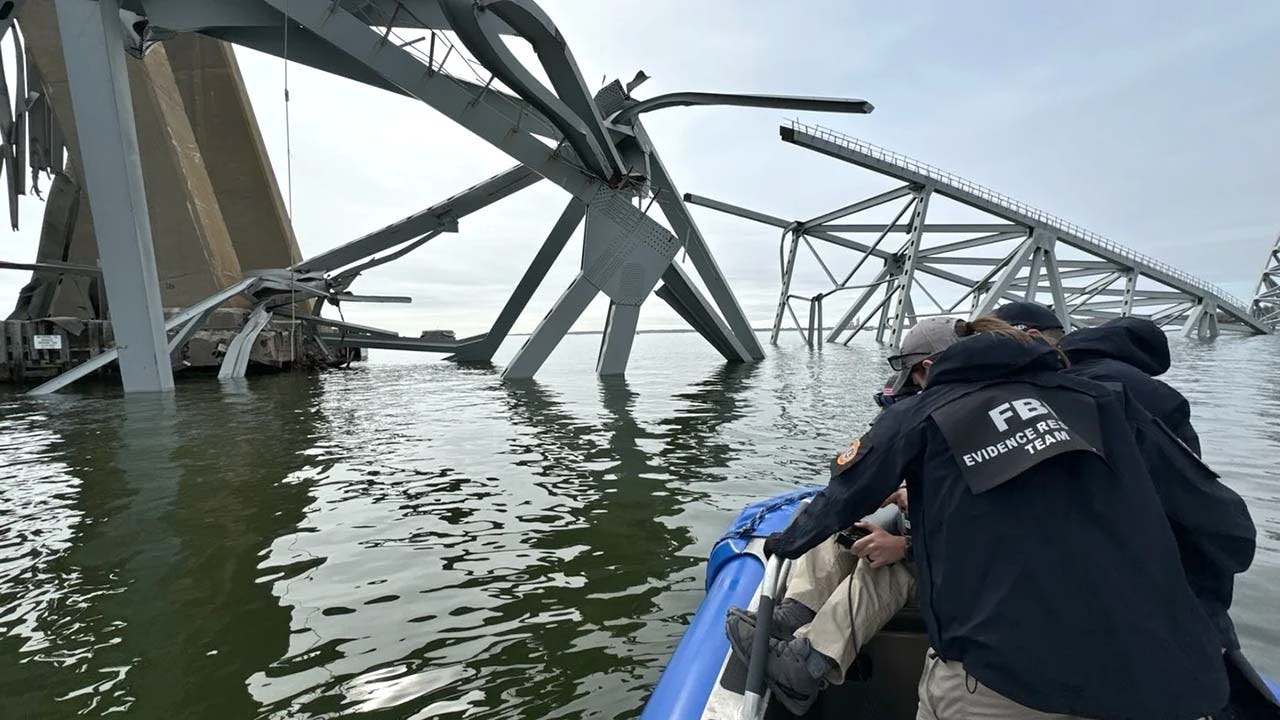Amid ongoing salvage operations in the aftermath of Baltimore’s Francis Scott Key Bridge collapse last week, divers are relying on sonar technology to guide them underwater.
Colonel Estee S. Pinchasin, Commander of the U.S. Army Corps of Engineers in Baltimore, said Wednesday that the “Coda Octopus” is the primary survey tool used by the divers.
“So, as visibility, if we’re lucky, it’s one to two feet right in front of them. It’s cloudy because of the four to five feet of mud and just the loose bottom of the Patapsco River,” Pinchasin said. “Divers are basically working in darkness because if they used lights, if we lit it up, it would be like they were driving through a snowstorm with their high beams on.”
The divers are guided by detailed verbal instructions and directions from operators and vessels up at the surface, Pinchasin said.
MARYLAND CRANE USED TO CLEAN UP BRIDGE COLLAPSE ALSO WAS USED FOR A 1970S CIA MISSION
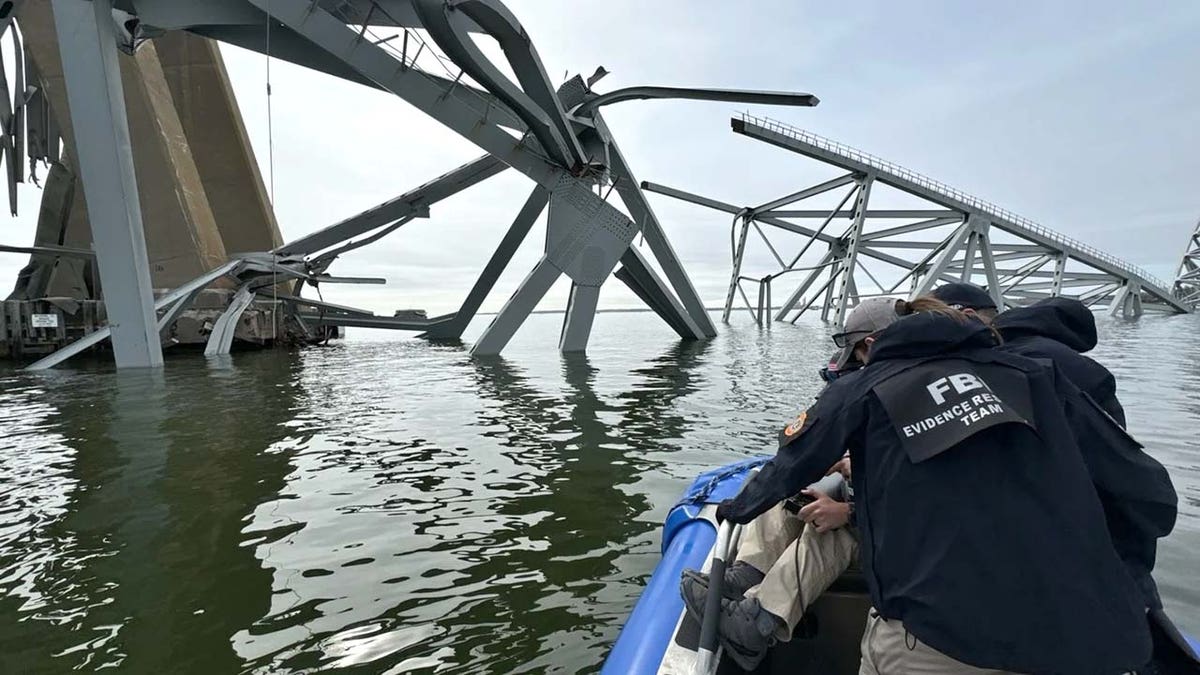
FBI Evidence Response Team members work at the site of the Francis Scott Key Bridge collapse in Baltimore on March 26. (FBI Baltimore)
“And what those divers are doing is they’re trying to feel those connections. The sonar, the imagery, can show you where things are and how they’re laying, but it’s really important for us to know how these are connected, if they’re connected at all,” Pinchasin said of the debris and wreckage and the bottom of the river. “And that’s what those divers have to go in and find.”
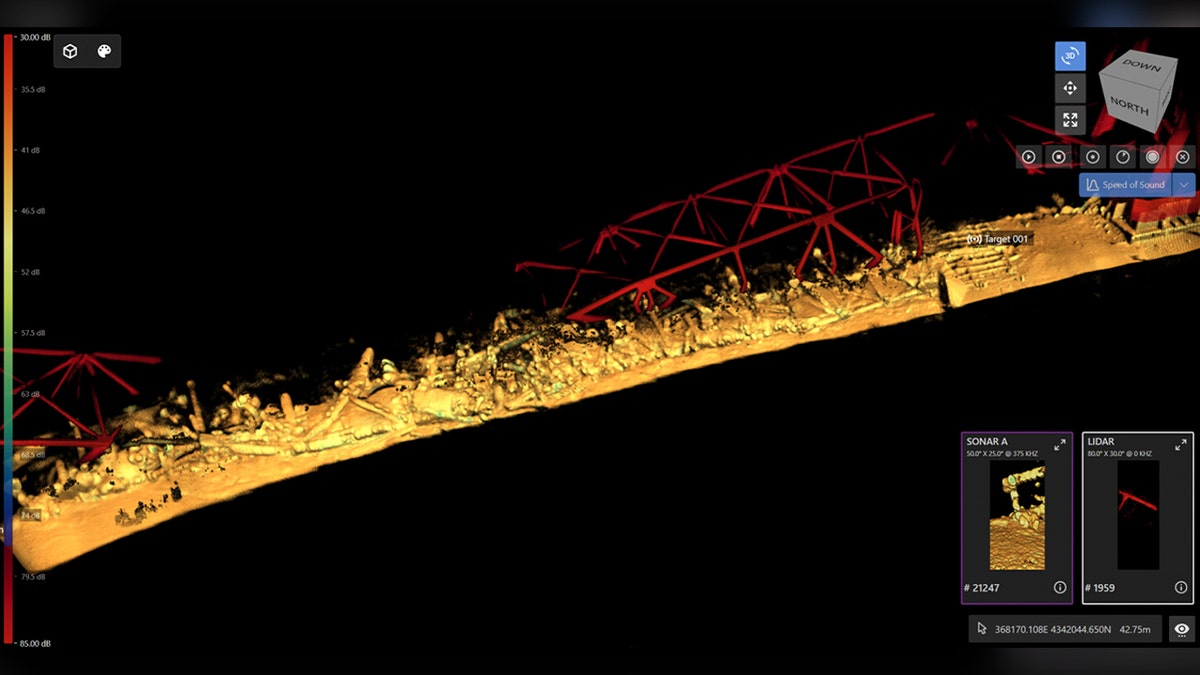
3D imagery shows the wreckage of the Francis Scott Key Bridge resting at the bottom of the Patapsco River. (U.S. Navy’s Naval Sea Systems Command (NAVSEA) Supervisor of Salvage and Diving (SUPSALV))
The U.S. Army Corps of Engineers posted 3D images of the wreckage online earlier this week. The photos were supplied by the Navy’s Naval Sea Systems Command (NAVSEA) Supervisor of Salvage and Diving (SUPSALV) and were taken by divers with the CODA Octopus.
MASS POWER OUTAGES, POSSIBLE TORNADOES REPORTED AS STORMS TEAR THROUGH MIDDLE AMERICA
The Army Corps of Engineers said the three images showed “the sheer magnitude of the very difficult and challenging salvage operation ahead.”
There is no usable underwater video footage of the wreckage because, as one diver put it, “there’s no need to take video of something you can’t even see.”
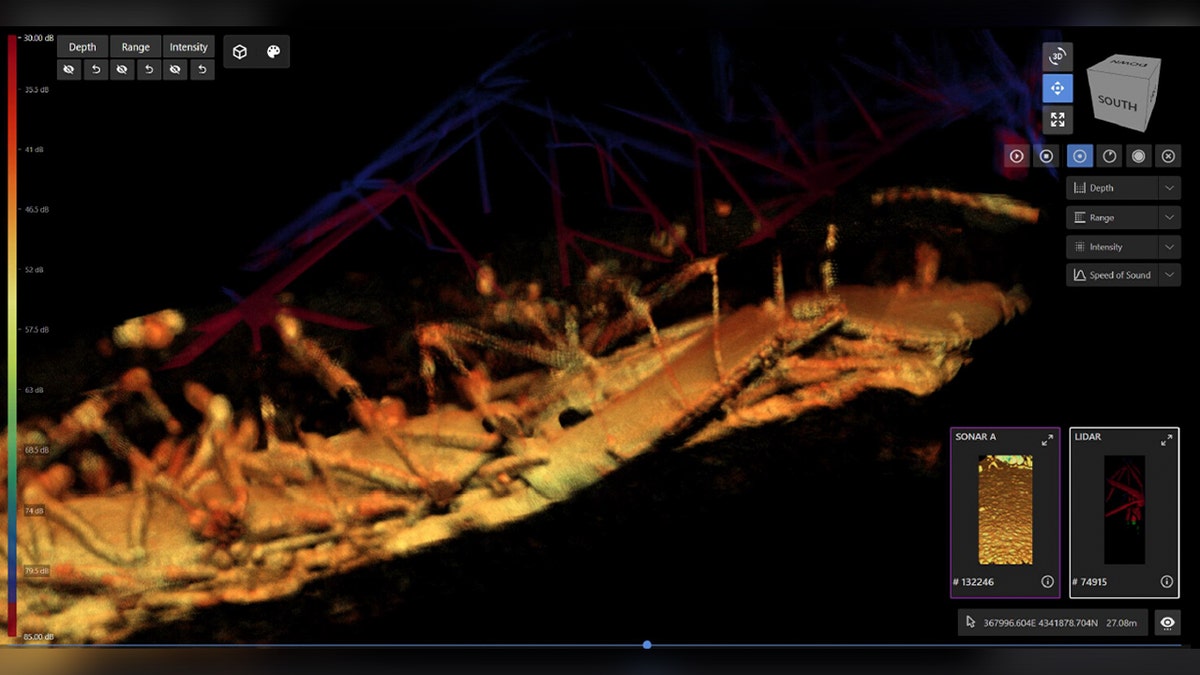
These 3D images were taken by divers using CODA Octopus sonar technology. (U.S. Navy’s Naval Sea Systems Command (NAVSEA) Supervisor of Salvage and Diving (SUPSALV))
Gov. Wes Moore has said rough weather has made salvage efforts even more daunting, with conditions that have been unsafe for divers trying to recover the bodies of the four construction workers believed trapped underwater in the wreckage. A large floating crane nicknamed “Chessy” is helping with the salvage.
Authorities believe six members of a road construction crew plunged to their deaths in the collapse, including two whose bodies were recovered last week. Two other workers survived.
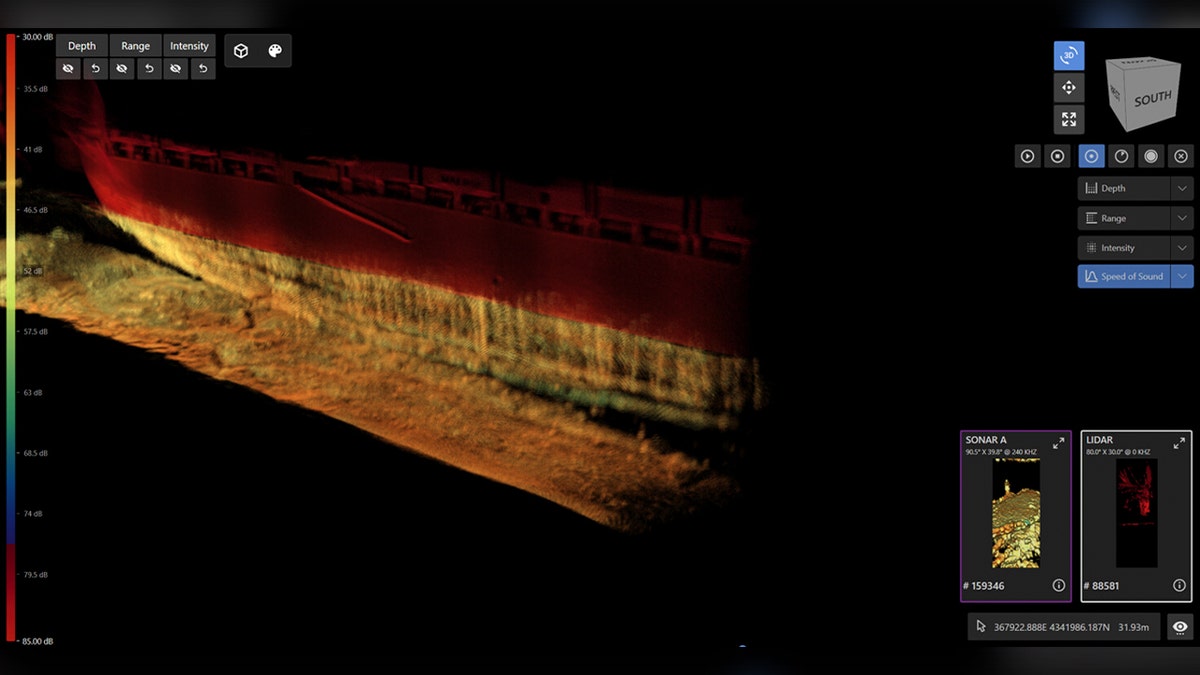
Divers reported that thick mud and murky water have made visibility so low it is all but impossible to capture video of the wreckage. (U.S. Navy’s Naval Sea Systems Command (NAVSEA) Supervisor of Salvage and Diving (SUPSALV))
The bridge collapsed after being struck by the cargo ship Dali, which lost power early March 26, shortly after leaving Baltimore on its way to Sri Lanka. The ship issued a mayday alert, which allowed just enough time for police to stop traffic, but not enough to save a roadwork crew filling potholes on the bridge. The ship remains stationary, and its 21 crew members remain on board.
The Dali is managed by Synergy Marine Group and owned by Grace Ocean Private Ltd., both of Singapore. Danish shipping giant Maersk chartered the Dali.
CLICK HERE TO GET THE FOX NEWS APP
Synergy and Grace Ocean filed a court petition Monday seeking to limit their legal liability, a routine but important procedure for cases litigated under U.S. maritime law. A federal court in Maryland will ultimately decide who is responsible and how much they owe.
Fox News Digital’s Chris Pandolfo and Louis Casiano and The Associated Press contributed to this report.
